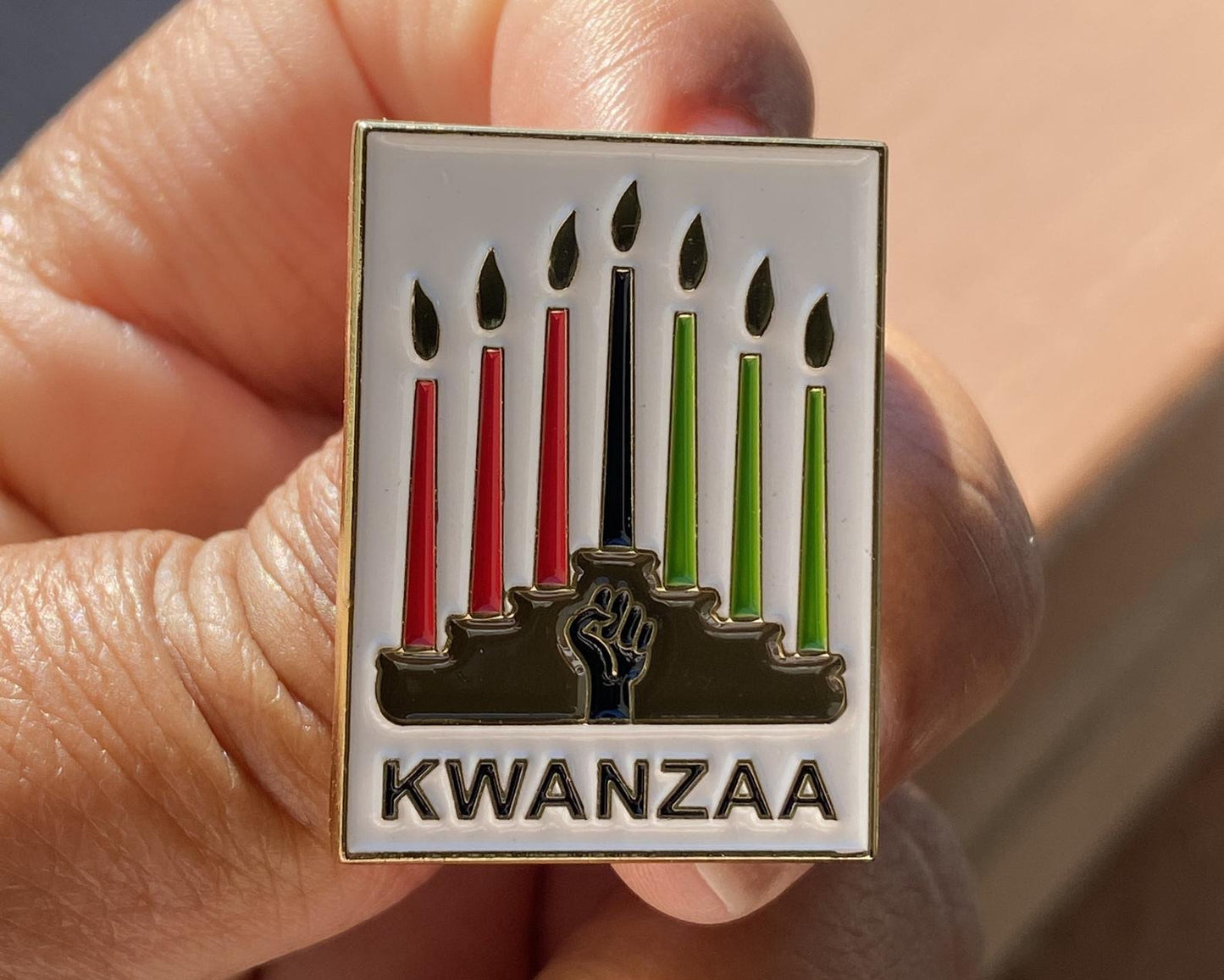Melanin Meanings
Kwanzaa Kinara Pin
Kwanzaa Kinara Pin
Couldn't load pickup availability
Ready for Kwanzaa? Make a statement on your jacket, hat, bag or add it to your pin collection. This pin is also a great stocking stuffer gift.
1.25”
Gold Plated
Soft Enamel
All items are sealed individually in an eco friendly, certified compostable (plant based) flap seal bag.
Need bulk or wholesale pricing? Contact us directly.
// KWANZAA //
Introduced in 1966, Kwanzaa is an annual celebration of African-American culture which is held from December 26 to January 1, culminating in gift-giving and a feast of faith called Karamu Ya Imani.
Nguzo Saba // 7 Principles of Kwanzaa:
- Umoja (Unity): To strive for and to maintain unity in the family, community, nation, and race.
- Kujichagulia (Self-Determination): To define and name ourselves, as well as to create and speak for ourselves.
- Ujima (Collective Work and Responsibility): To build and maintain our community together and make our brothers' and sisters' problems our problems and to solve them together.
- Ujamaa (Cooperative Economics): To build and maintain our own stores, shops, and other businesses and to profit from them together.
- Nia (Purpose): To make our collective vocation the building and developing of our community in order to restore our people to their traditional greatness.
- Kuumba (Creativity): To do always as much as we can, in the way we can, in order to leave our community more beautiful and beneficial than we inherited it.
- Imani (Faith): To believe with all our hearts in our people, our parents, our teachers, our leaders, and the righteousness and victory of our struggle.
Kwanzaa celebratory symbols include a mat (Mkeka) on which other symbols are placed: a Kinara (candle holder for seven candlesticks[18]), Mishumaa Saba (seven candles), mazao (crops), Mahindi (corn), a Kikombe cha Umoja (unity cup) for commemorating and giving shukrani (thanks) to African Ancestors, and Zawadi (gifts). Supplemental representations include a Nguzo Saba poster,[19] the black, red, and green bendera (flag), and African books and artworks – all to represent values and concepts reflective of African culture and contribution to community building and reinforcement. Ears of corn represent the children celebrating and corn may be part of the holiday meal.
Share


